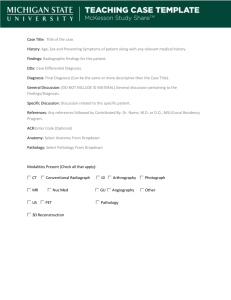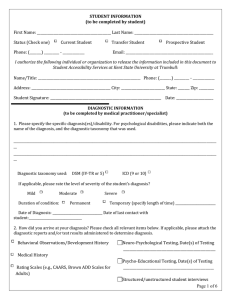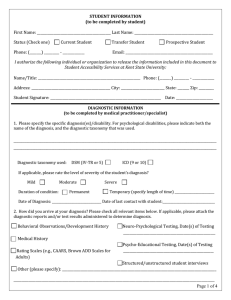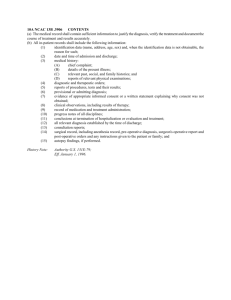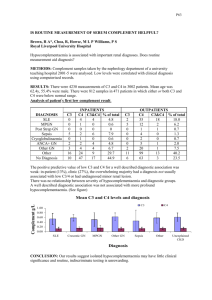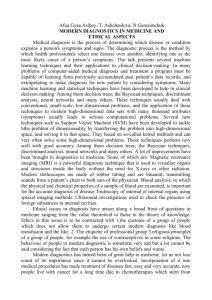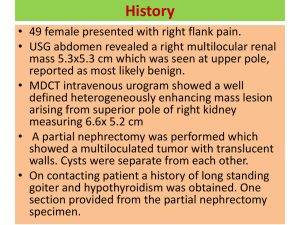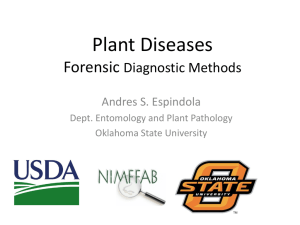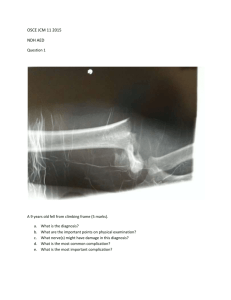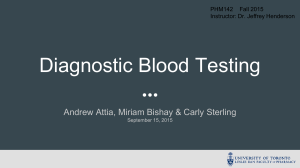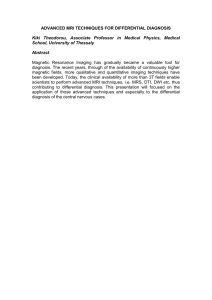Unpacking Outcomes - North East School Division
advertisement
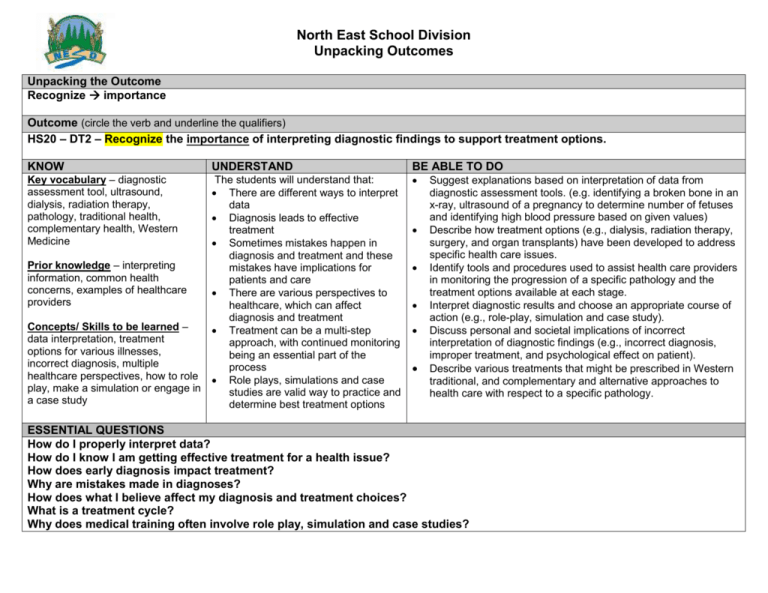
North East School Division Unpacking Outcomes Unpacking the Outcome Recognize importance Outcome (circle the verb and underline the qualifiers) HS20 – DT2 – Recognize the importance of interpreting diagnostic findings to support treatment options. KNOW UNDERSTAND BE ABLE TO DO Key vocabulary – diagnostic assessment tool, ultrasound, dialysis, radiation therapy, pathology, traditional health, complementary health, Western Medicine The students will understand that: There are different ways to interpret data Diagnosis leads to effective treatment Sometimes mistakes happen in diagnosis and treatment and these mistakes have implications for patients and care There are various perspectives to healthcare, which can affect diagnosis and treatment Treatment can be a multi-step approach, with continued monitoring being an essential part of the process Role plays, simulations and case studies are valid way to practice and determine best treatment options Prior knowledge – interpreting information, common health concerns, examples of healthcare providers Concepts/ Skills to be learned – data interpretation, treatment options for various illnesses, incorrect diagnosis, multiple healthcare perspectives, how to role play, make a simulation or engage in a case study Suggest explanations based on interpretation of data from diagnostic assessment tools. (e.g. identifying a broken bone in an x-ray, ultrasound of a pregnancy to determine number of fetuses and identifying high blood pressure based on given values) Describe how treatment options (e.g., dialysis, radiation therapy, surgery, and organ transplants) have been developed to address specific health care issues. Identify tools and procedures used to assist health care providers in monitoring the progression of a specific pathology and the treatment options available at each stage. Interpret diagnostic results and choose an appropriate course of action (e.g., role-play, simulation and case study). Discuss personal and societal implications of incorrect interpretation of diagnostic findings (e.g., incorrect diagnosis, improper treatment, and psychological effect on patient). Describe various treatments that might be prescribed in Western traditional, and complementary and alternative approaches to health care with respect to a specific pathology. ESSENTIAL QUESTIONS How do I properly interpret data? How do I know I am getting effective treatment for a health issue? How does early diagnosis impact treatment? Why are mistakes made in diagnoses? How does what I believe affect my diagnosis and treatment choices? What is a treatment cycle? Why does medical training often involve role play, simulation and case studies?
